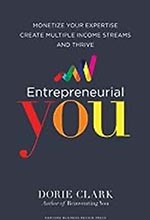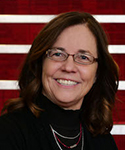Resource Gems:
Free University Resources to Help You Tell Your Story in the Job Market
Timothy Stephenson
MTNA Business Digest, Volume 3, Issue 1
October 2023
Looking to update your resume, cover letter, teaching philosophy, or other job application materials? Universities across the country house career centers with free online resources that can help! Whether you are actively on the job hunt or are just looking to hone your portfolio materials, these resources provide valuable insight into how to tell your story through these staple documents.
The following five university pages are an excellent jumping-off point but consider visiting the websites of universities in your area, as they will likely have their own career center resources available to the public.
Columbia University: Center for Career Education
Columbia University’s robust offering of career resources are organized into the following categories: Resumes & CVs, Cover Letters, Networking, Negotiating, Interviews, Workplace, Career Advancement, and Graduate School. Each of these sections contains articles, blog posts, and attachments from the most basic to advanced topics in these areas. For example, the Resumes & CVs section ranges from an article entitled “What is a Resume?” to one that contains over ten free sample resumes that demonstrate how to tailor a resume to illustrate a specific competency.
University of Washington: Career and Internship Center
“Tell Your Story” is the title of the University of Washington’s website on preparing job application materials and its resources include wide-ranging mediums: recorded webinars, short videos, handouts, checklists, and more. Some examples include a short video on formatting cover letters, a webinar on resume writing basics, an informational handout on resume action verbs, and a checklist on building a good LinkedIn profile.
University of California, Riverside: Graduate Writing Center
Geared towards job seekers in the academic setting, the writing resources available through the University of California, Riverside’s career center include a full checklist of needed academic job materials and a series of “how-to” links for each document. UC Riverside goes as far as to parse out the difference between CVs, Research CVs, and Teaching CVs, with samples of each, and includes specific links for crafting diversity statements and other typical academic-specific documents.
University of California, Davis: Internship and Career Center
University of California, Davis provides a separate informational page on each of the following written materials: Resume/CV, Cover Letter, References, Writing Sample, and Portfolio. Each page is structured slightly different: for example, the Cover Letter page includes an instructional video, cover letter samples, a list of dos & don’ts, and an outline of cover letter sections. The References page includes a sample reference list and sections on who should serve as a reference, preparing references, submitting references, and more.
University of Michigan: Center for Research on Learning and Teaching
Among the University of Michigan’s robust career offerings is the Center for Research on Learning and Teaching, which provides instruction on crafting teaching philosophies, statements, and portfolios. A visit to the teaching philosophy site will yield a series of resources from the University of Michigan, including a rubric for statements of teaching philosophy and sample teaching statements from university students. Additionally, University of Michigan includes resources and links from six other peer institutions, as well as external references, for a grand total of twenty-one articles, pages, or handouts on teaching statements housed on a single website.
Looking for a good read?
Karen Thickstun, NCTM
Entrepreneurial You by Dorie Clark

Diversified income streams are one answer to the question “How can you create a long-term, sustainable business that rewards you emotionally, intellectually, and financially?”
This is the opening question posed by Dorie Clark in the prologue of Entrepreneurial You. With diversification of revenue streams a key topic in almost every profession, including teaching, this question is more relevant than ever. Clark highlights key issues that all entrepreneurs face as they seek to generate revenue from their area(s) of expertise.
The author notes: “It’s no secret that…many professionals dream of becoming independent, whether by starting their own businesses, becoming consultants or freelancers, or developing a sideline…But there’s a major obstacle professionals face when they contemplate taking the leap: how to actually make money doing what they love. You may have incredible talent and novel ideas, but figuring out how to get started, building your reputation in a new realm, developing multiple revenue streams, and bringing in a steady flow of new clients can be a daunting prospect.”
Clark’s own current business model has seven distinct income streams—writing books, speaking, teaching business school, consulting, executive coaching, online courses and affiliate income. She freely shares her mistakes and successes while distilling best practices that can inform us all. Early on, she makes the important point that “Learning to make money from your expertise is a different skill set from what’s needed to become excellent at your work or well known in your field...”
Clark’s previous books, Reinventing You and Stand Out, focus on developing your brand and ensuring your expertise is well known in your field. Entrepreneurial You addresses the next step of “how”—how to create sustainable income streams in today’s uncertain economy and its digital environment.
For teachers wishing to diversify their revenue while using their creative talents through ventures that are as enjoyable and rewarding as teaching is, Entrepreneurial You provides a roadmap for identifying and implementing practical ways to do so. Clark advises readers to first think about how to provide value to others, and then choose a very few revenue streams to focus on.
Using real-life case studies, the book outlines specific revenue streams and illustrates strategic and practical ways to pursue each stream. While not written specifically for musicians or teachers, almost all strategies are applicable to those professions. Each chapter addresses a specific area of diversification, including chapters focused on how to:
- Become a coach or consultant
- Build a speaking practice
- Build a following through podcasting
- Develop your audience by blogging and vlogging
- Bring your followers together (through conferences or other events)
- Create an online course
- Create digital products and online communities
- Leverage your reach with affiliate income
Note that many of these streams are digital and reflect contemporary marketing strategies. I found that the chapters could be read in any order, depending on one’s interests. Throughout the book, “Try This” sections pose questions for the reader to apply key concepts to their own business. Additional free resources on Clark’s webpage are also referenced throughout the book.
Clark advises the reader to “find the activities that interest and delight you…double-down and work on mastering (them) before adding on another activity. ‘Deep work’ is what will get you recognized, attract an audience, and allow you to monetize your ideas…(W)hat matters most is focus and execution…You have to forcibly make room in your schedule to write that blog post, record that podcast, attend that conference, or create that curriculum. But when you make it a priority and a habit, amazing things start to happen.”
Entrepreneurial You can help you get started with diversifying your income. Take the first step.

Tim Stephenson
is a pianist, teacher and administrator on staff at the Indianapolis Symphony Orchestra and on faculty at Pacific Piano School. Tim is currently a doctoral candidate at IU’s Jacobs School of Music.

Karen Thickstun, NCTM, teaches piano pedagogy at Butler University and recently retired as founding director of the Butler Community Arts School. She holds degrees in music, economics and business. Thickstun is MTNA immediate past president.